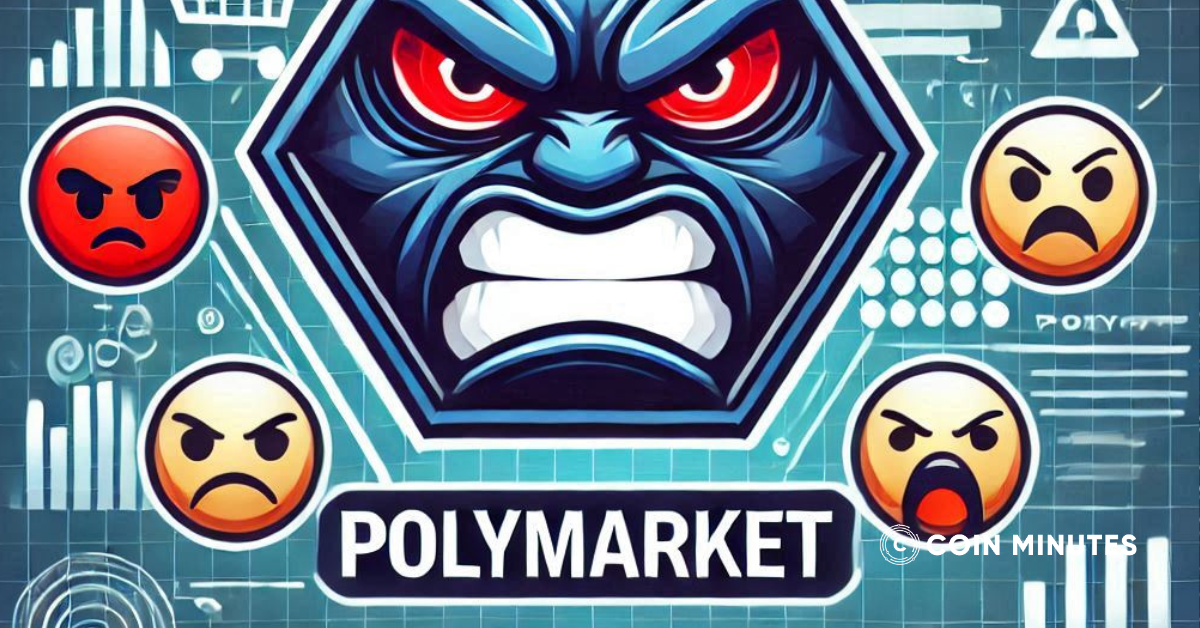Polymarket, a decentralized prediction market platform, has recently been embroiled in controversy after users began placing bets on the ongoing California wildfires. These markets allow participants to predict various outcomes related to the fires, such as their spread, containment, and even potential political resignations. The recent backlash, which erupted after the fires started in the Hollywood Hills on January 8, 2025, has ignited fierce debates about ethics and the platform’s role in facilitating such betting activities during a devastating disaster.
A Tragedy Turned into a Betting Game
On Wednesday, January 8, California faced a series of wildfires that quickly spread across Los Angeles. The fires, which have already claimed the lives of five individuals and forced over 137,000 people to evacuate their homes, have been met with grief and concern across the state. However, amid this tragedy, Polymarket users turned to the platform to create prediction markets centered around the fires’ progression.
Markets began to form around questions such as when the fires would be contained, which areas would be impacted next, and even whether local politicians might resign due to the disaster’s scale. These markets have already seen significant financial activity, with some of them reaching nearly $100,000 in volume. This activity has been framed as a way to leverage collective insight to predict outcomes. However, many argue that turning human suffering and tragedy into a betting opportunity is deeply inappropriate and morally wrong.

The Public Outcry
The public reaction to these prediction markets has been overwhelmingly negative, with many critics calling Polymarket’s actions “disgusting” and “sickening.” One user on the social platform X (formerly Twitter) expressed their outrage, stating, “Betting on a wildfire is sick.” Another commented, “Betting on such a tragedy is unarguably uncouth beyond fucking measure.” These responses reflect a broader sentiment that this type of betting is not only insensitive but also a gross exploitation of a public tragedy for financial gain.
Concerns have also been raised about the potential for prediction markets to incentivize harmful actions. For example, critics fear that individuals may see the markets as an opportunity to influence the outcome by starting fires themselves in the hopes that their predictions will come true. One user pointed out that the odds in these markets are purely driven by the sentiment of bettors, not by any factual basis. They argued that Polymarket’s depiction of wildfire predictions—such as a “48% chance it will spread”—is misleading and dangerous, as it implies that the probability of an event is a factual assessment rather than a reflection of betting behavior.
A Troubling Pattern for Polymarket
This backlash is not the first time Polymarket has found itself in hot water for facilitating controversial prediction markets. Last year, the platform faced widespread criticism when markets emerged around the fate of the Titan submersible, which tragically imploded, killing all five passengers aboard. In that instance, users wagered on whether the sub would suffer a catastrophic failure, further highlighting concerns over the ethics of betting on life-or-death scenarios.
These incidents have raised significant questions about the ethics of prediction markets in general. Are platforms like Polymarket simply providing a service where people can predict outcomes in a decentralized way, or are they crossing a line by allowing people to profit off of catastrophic events? The debate is far from settled, and with the California wildfires bringing the issue back into the spotlight, it’s likely that more scrutiny will be directed at platforms like Polymarket in the future.
Live In L.A? Crypto Bros Are Betting You’ll Literally Burn
As the Palisades wildfire scorches 17,000+ acres and claims 5 lives, crypto punks are spinning up bets and memecoins like there’s no tomorrow.
Polymarket’s wildfire pools are pulling $166K in bets, with most predicting… pic.twitter.com/Rzm3ozeDPg
— Mario Nawfal’s Roundtable (@RoundtableSpace) January 10, 2025
The controversy surrounding Polymarket raises important ethical questions about the role of decentralized platforms in our lives. While Polymarket and similar services may argue that they are merely providing a space for users to engage with the “wisdom of the crowd,” critics see it as a form of exploitation. The issue isn’t just about the fire itself, but about the broader implications of allowing financial speculation on human suffering and tragedies.
Related news: Unveiling Terra’s $50 Billion Collapse: A Third-Party Attack or Founder’s Fault?








